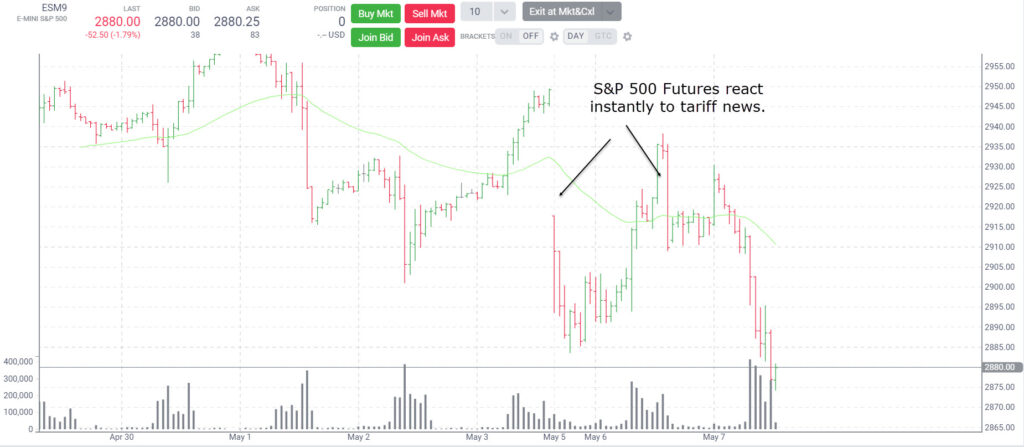Home › Market News › 5 Ways to Stop Gifting Money to the Markets – Part 4: Avoid Over-Trading
Technology has changed many aspects of our lives; one area that has seen massive improvement is the world of investing and trading. There’s never been a better time for the individual investor to participate in financial markets.
But it’s not all good news. The ability to trade nearly 24/7 and at speeds never seen before has a couple of disadvantages. Let’s discuss them here in Part 4 of our series on Not Gifting Money to the Markets.
(Note: this is the fourth in a five-part series. If you missed them, check out Part 1, Part 2, Part 3, and Part 5)
Investors have more information today than ever before. Research that was once available only to Wall Street analysts is now readily available through financial websites or brokerage platforms. At the same time, fees and commissions have been slashed to almost nothing. And while brokerage firms have developed a wide array of online tools for investors, the exchanges have created the infrastructure needed to send orders electronically and execute trades with the click of a mouse.
If the financial world today has leveled the playing field by providing individual investors vast amounts of financial information and the ability to execute buy/sell orders in milliseconds, it has also created some unique challenges that didn’t exist in the past.
For example, markets react much faster today; not only can investors react instantly, but language-processing algorithms are digesting headlines – and triggering market moves – before humans can even read the first two words.
Fast-moving markets mean it’s difficult to stay ahead of the latest headlines and simply “trade the news” anymore (not that it was ever easy to do so).
Also, a sudden flurry of buy or sell orders can cause news-driven moves (and occasional “flash crashes”) that result in intraday kneejerk reactions and gap moves, like the one on the S&P 500 (ES) chart in Figure 1 after President Trump unexpectedly quashed hopes for a resolution to the trade squabble with China by announcing a new round of tariffs on Sunday, May 5.

Figure 1: ES Futures
Tip #1: Have a backup plan. What if there is a power outage or the internet goes out? Do you have the phone number of your brokerage firm’s trading desk, or can you use your cell phone as a mobile hotspot? What if the market makes a gap move and your stop isn’t triggered? Are you ready to place a market order to buy or sell?
With electronic trading platforms, it’s never been easier for anyone, anywhere, at any time, to access the markets. Your three-year-old can click a mouse and buy 10,000 barrels of crude oil in an instant (not recommended).
But when this ease of market access leads to too-frequent trading, problems can arise. For example, a trader might try to make up for a loss by immediately placing another trade. And then that one doesn’t work, so they place another trade, and so on. This is sometimes called “revenge” trading, and it is rarely a good idea.
Tip # 2: It’s sometimes better to take a break after a loss (maybe a 20-minute walk or a trip to the range to take your anger out on a bucket of golf balls) rather than try to make up for losses with more trades. This falls into the category of not “throwing good money after bad.” Take a break and come back with an objective mindset. Maybe your setups are just not good in the current market environment.
Another approach that rarely works is to increase the size of the trade after a loss. The idea is similar to the so-called Martingale strategy in betting systems: a loser of a bet doubles their bet each time because the next win will cover all the previous losing bets. Obviously, margin requirements make it unrealistic in the futures market, and, even if it were possible, the trader is risking financial ruin if the position grows too large.
We live in a world where markets don’t stop moving. In many ways, the advances in technology and reduced trading costs are a boon for aspiring traders. But speed doesn’t necessarily give an edge when trading news events; humans are not as fast as machines.
Also, instant market access can create problems when traders start throwing good money after bad and fall into the trap of overtrading. Lastly, doubling down on losing bets might sound reasonable in theory, but it’s not practical in the futures market and can lead to outsized losses that are difficult to recoup.
